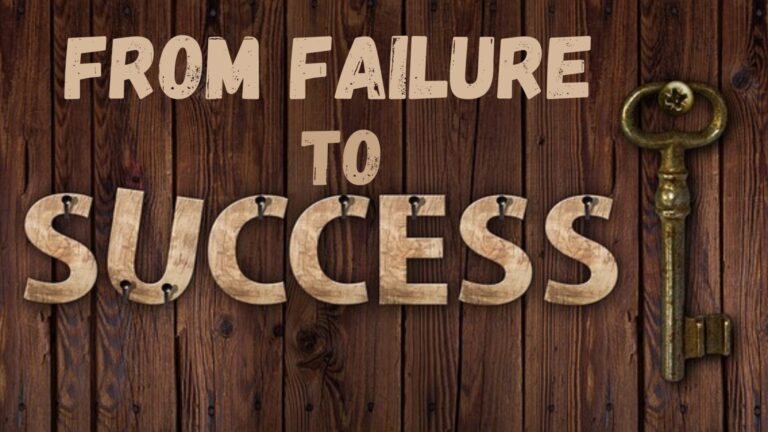Introduction:-
Decoding Life’s Lessons: Strategies for Applying Wisdom in Real-Time Scenarios

Life is a continuous learning journey, filled with valuable lessons that shape our growth and development. However, the real challenge lies in applying these lessons when faced with the complexities of everyday situations. In this article, we’ll explore effective strategies for Decoding Life’s Lessons and translating life’s teachings into actionable steps in real-time scenarios.
Can you share effective strategies for decoding life’s lessons and translating its teachings into actionable steps in real-time scenarios?
1. Understand the Lesson’s Relevance: Before applying any lesson, it’s crucial to understand its relevance to your current circumstances. Ask yourself how the wisdom gained applies to the challenges you’re facing, ensuring a tailored and practical approach.

2. Break It Down into Practical Steps: Life lessons can sometimes feel overwhelming. Break them down into smaller, actionable steps. This not only makes the application more manageable but also increases the likelihood of successful implementation.
3. Create Personalized Affirmations: Craft affirmations that resonate with the specific lesson you’re trying to apply. Repeat these affirmations regularly to reinforce the mindset needed to integrate the lesson into your daily life.
4. Visualize Success: Visualization is a powerful tool for application. Picture yourself successfully applying the lesson in real-time scenarios. This mental rehearsal can enhance your confidence and readiness for action.
5. Establish Clear Goals: Set clear and achievable goals related to the lesson at hand. Define what success looks like, and create a roadmap to guide your actions. Having specific goals provides direction and purpose.
6. Reflect on Past Successes: Reflect on instances where you successfully applied similar lessons in the past. Draw inspiration from your achievements, reminding yourself that you have the capability to navigate challenges effectively.
7. Embrace a Growth Mindset: Cultivate a growth mindset that views challenges as opportunities for learning and improvement. This mindset shift can make you more open to applying new lessons and adapting to different situations.
8. Seek Guidance and Mentorship: Don’t hesitate to seek guidance from mentors or individuals who have successfully applied similar life lessons. Their insights and experiences can offer valuable perspectives and practical tips.
9. Stay Present and Mindful: In real-time scenarios, staying present and mindful is key. Practice being fully engaged in the moment, allowing you to make conscious decisions aligned with the lessons you’ve learned.
10. Learn from Setbacks: Not every attempt to apply a life lesson will be flawless. Embrace setbacks as opportunities to learn and refine your approach. Use these experiences to adapt and strengthen your application strategy.
What is the most important lesson for us to learn from life?
Determining the single most important lesson from life is subjective, as individuals may prioritize different values and principles. However, a commonly held perspective is that one of the crucial lessons from life is to cultivate and practice empathy.
Empathy involves understanding and sharing the feelings of others, putting oneself in their shoes, and connecting emotionally. Learning to empathize can lead to various positive outcomes, including improved relationships, enhanced communication, and a deeper understanding of the human experience. It fosters compassion, kindness, and a sense of community, contributing to a more harmonious and fulfilling life for both oneself and those around them.
What lessons did you learn about overcoming challenges?
I can provide information on general strategies that individuals often find helpful in overcoming challenges:

- Resilience is Key: Developing resilience is crucial when facing challenges. Resilient individuals are better able to bounce back from setbacks, adapt to change, and maintain a positive outlook.
- Problem-Solving Skills: Enhancing problem-solving skills can empower individuals to address challenges more effectively. Breaking down complex problems into smaller, manageable tasks can make them more approachable.
- Positive Mindset: Maintaining a positive mindset can significantly impact one’s ability to overcome challenges. Focusing on solutions, opportunities for growth, and maintaining optimism can help navigate difficult situations.
- Seeking Support: Don’t hesitate to seek support from friends, family, or professionals. Having a strong support system can provide encouragement, different perspectives, and practical assistance when facing challenges.
- Continuous Learning: Embrace challenges as opportunities to learn and grow. Every obstacle presents a chance to acquire new skills, gain insights, and strengthen personal development.
- Adaptability: Being adaptable in the face of challenges is essential. The ability to adjust to changing circumstances and approach problems with flexibility can enhance problem-solving capabilities.
- Self-Reflection: Regular self-reflection allows individuals to gain a deeper understanding of themselves, their strengths, and areas for improvement. This self-awareness can guide effective decision-making during challenging times.
- Setting Realistic Goals: Establishing clear, realistic goals can provide direction and motivation. Breaking down larger goals into smaller, achievable steps makes progress more tangible.
- Time Management: Effective time management helps prioritize tasks and allocate resources efficiently. This skill is crucial when dealing with multiple challenges or tight deadlines.
- Maintaining Balance: Striking a balance between work, personal life, and self-care is important for overall well-being. Taking care of physical and mental health contributes to the resilience needed to face challenges.
Remember, the ability to overcome challenges is a lifelong learning process, and the strategies that work may vary from person to person and situation to situation. Each challenge provides an opportunity for personal growth and the development of valuable life skills.
Conclusion:
Cracking the code of applying life’s lessons in real-time scenarios is a dynamic process that requires intention, self-reflection, and a commitment to continuous improvement. By employing these strategies, you can bridge the gap between knowledge and action, ensuring that the wisdom you acquire becomes an integral part of your journey towards personal growth and fulfillment.





